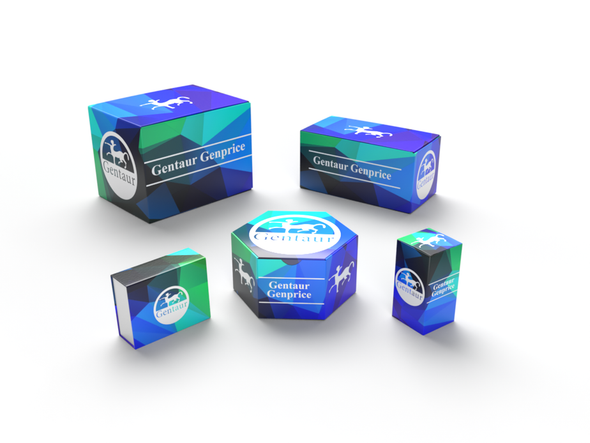BW
ATM (phospho-S1981) polyclonal Antibody | BS5005
- SKU:
- BW-BS5005
- Availability:
- Usually ships in 5 working days
Description
ATM (phospho-S1981) polyclonal Antibody | BS5005 | Gentaur UK, US & Europe Distribution
Host: Rabbit
Reactivity: Human
Application: WB IHC
Application Range: WB: 1:500~1:1000 IHC: 1:50~1:200
Background: The phosphatidylinositol kinase (PIK) family members fall into two distinct subgroups. The first subgroup contains proteins such as the PI 3- and PI 4-kinases and the second group comprises the PIK-related kinases. The PIK-related kinases include Atm, DNA-PKCS and FRAP. These proteins have in common a region of homology at their carboxy-termini that is not present in the PI 3- and PI 4-kinases. The Atm gene is mutated in the autosomal recessive disorder ataxia telangiectasia (AT) that is characterized by cerebellar degeneration (ataxia) and the appearance of dilated blood vessels (telangiec-tases) in the conjunctivae of the eyes. AT cells are hypersensitive to ionizing radiation, impaired in mediating the inhibition of DNA synthesis and display delays in p53 induction.
Storage & Stability: Store at 4°C short term. Aliquot and store at -20°C long term. Avoid freeze-thaw cycles.
Specificity: p-ATM (S1981) polyclonal Antibody detects endogenous levels of ATM protein only when phosphorylated at Ser1981.
Molecular Weight: ~ 350 kDa
Note: For research use only, not for use in diagnostic procedure.
Alternative Names: A-T mutated; A-T mutated homolog; AT complementation group A; AT complementation group C; AT complementation group D; AT complementation group E; AT mutated; AT protein; AT1; AT1; ATA; Ataxia telangiectasia gene mutated in human beings; Ataxia telangiectasia mutated; Ataxia telangiectasia mutated gene; Ataxia telangiectasia mutated homolog (human) ; Ataxia telangiectasia mutated homolog; ATC; ATD; ATDC; ATE; ATM; ATM; DKFZp781A0353; Human phosphatidylinositol 3 kinase homolog; MGC74674; OTT
Immunogen: Synthetic phosphopeptide derived from human ATM around the phosphorylation site of Serine 1981.
Conjugate: Unconjugated
Modification: Phosphorylation
Purification & Purity: The Antibody was affinity-purified from rabbit antiserum by affinity-chromatography using epitope-specific immunogen and the purity is > 95% (by SDS-PAGE) .
Pathway: Phospholipase Signaling,Regulation of Microtubule Dynamics,G Protein-coupled Receptors Signaling to MAPK Erk,ErbB HER Signaling,




![Phospho-ATM (S1981) Antibody [APR05197G] Phospho-ATM (S1981) Antibody [APR05197G]](https://cdn11.bigcommerce.com/s-1rdwiq712m/images/stencil/590x590/products/57938/58242/gentaur-genprice__26005.1661610467__29809.1661628092__75433.1661676199__77988.1661684280__64362.1661692443__39028.1661854509.png?c=1)

